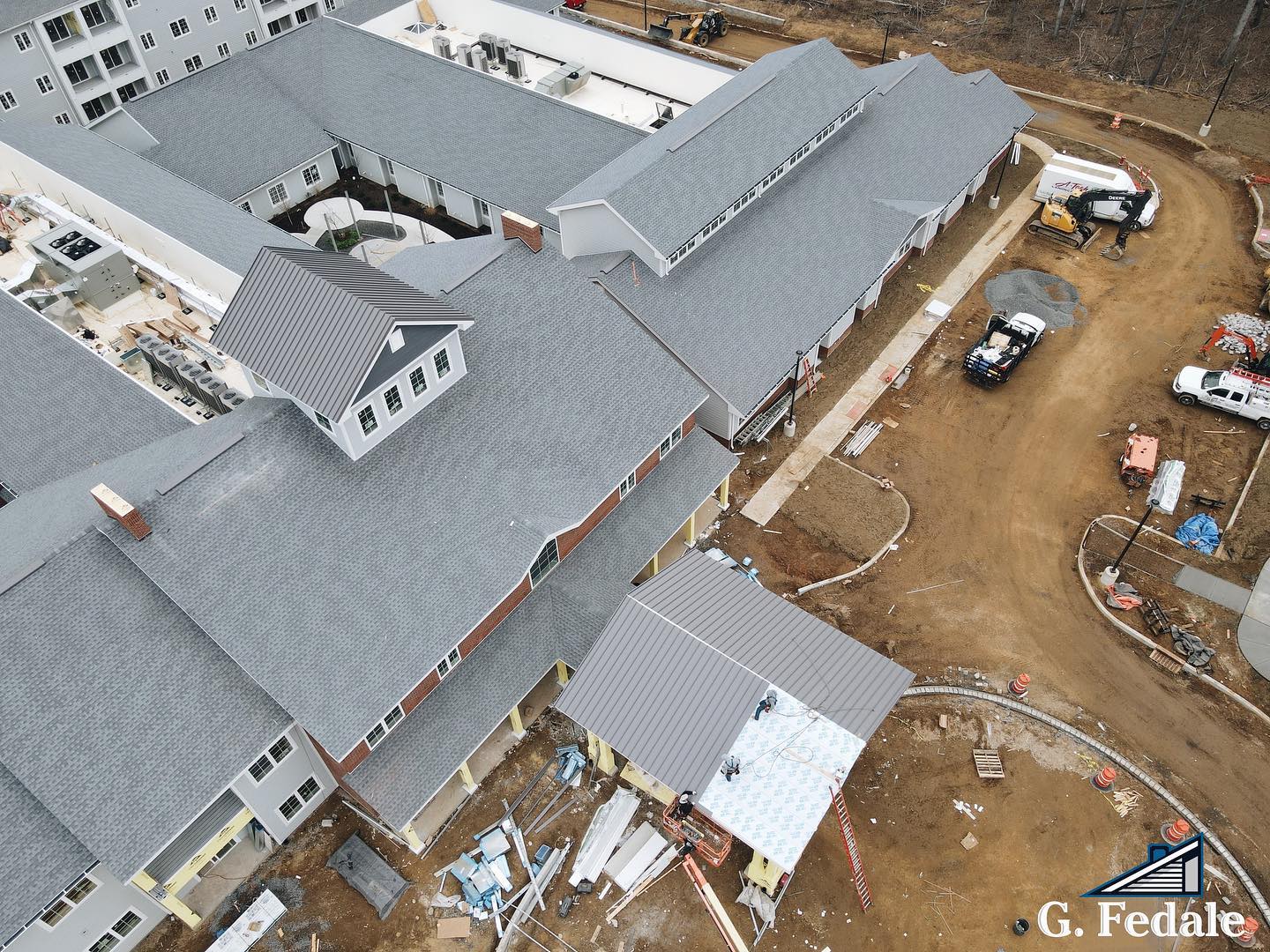We can credit the U.S. military when it comes to technologies used today in various applications in the building trades industry: Drones are valuable tools in helping prepare an accurate estimate for roof replacement from afar. Infrared technologies, first used decades ago in the military, are also proving useful in determining the extent of water damage to commercial roofs. The latter can save developers thousands of dollars by accurately assessing whether preexisting water damage can be remedied through repair or if a full roof replacement is necessary.
Scans are exclusive to the commercial market, which represent around 20% of our business. These are conducted on EPDM rubber roofing, TPO thermal plastic polyolefin single-ply membrane roofs or on built-up roofing systems. The service is recommended for larger projects. We recently completed a scan for a 10,000 square-foot non-profit in Hockessin.
In keeping with the G. Fedale motto, “Clean, correct service you can trust,” we are intent on assuring our clients that providing an accurate diagnosis will prevent an inaccurate remedy. Without the benefit of a thermal scan, another roofing contractor may be able to identify an area where the insulation feels squishy. The contractor may apply a silicone seal as a quick fix. But if a true moisture issue exists underneath, the repair will fail.
For accuracy, the roof scan must be performed on a roof that has experienced a couple days of dry weather conditions. The scan seeks out temperature differences between areas underneath a membrane. “Dry insulation works in maintaining the ambient temperature of the roof. Wet insulation conducts heat faster than the dry. This thermal anomaly serves to assess the extent of damage and therefore the potential scope of work” said Andrew Serratore, a senior commercial project manager at G. Fedale.
The scans are beneficial to both the developer and to our roofing company. “It’s a budgetary service tool for the business to know what their options are,” he said, adding, “Some contracts are for scans only; a service to provide clients the correct scope and roof report when considering a project. We also contract scans as part of a project. The build in advanced service helps to solidify the scope of replacement work, increase efficiency and assist in providing active job expectations to the client”.
The scan’s findings are documented in a detailed report. “I will advise them as much as I can – property managers and building owners – anything in the private [sector] commercial market. It can save from thousands up to six figures if a roof restoration is an option rather than replacement. On the other hand, it can also protect a client from restoring a roof which is no longer viable,” Andrew said.

